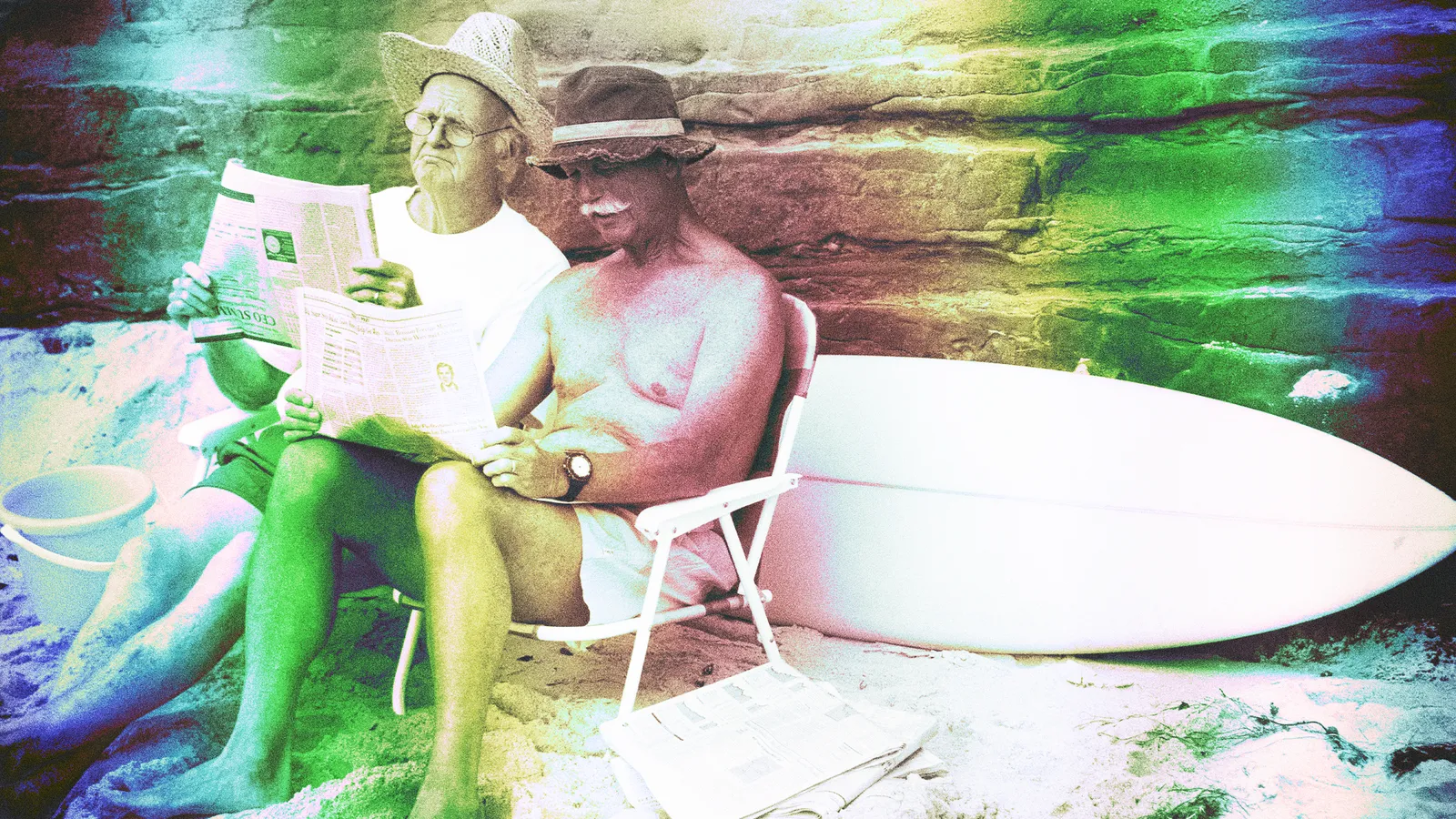
The Longest Living People In the World All Abide by the ‘Power 9’ Rule
Every day we’re inundated with the “right” things to do to live a longer life. Drink eight glasses of water a day, they say. Go to the pharmacy for an off-label prescription, advise others. And others task us with the impossible—yet promising—task to just keep a positive mindset.
Today, the average life expectancy of an American is 76.4 years, and in 2023 over 70,000 Americans reached their 100th birthday. But in the Blue Zones, or regions of the world where people live exceptionally long lives, individuals are ten times more likely to live to 100. These places—specifically the Barbagia region of Sardinia, Italy, Okinawa, Japan, Nicoya Peninsula, Costa Rica; and Icaria, Greece—are packed with centenarians.
It was only a matter of time until medical researchers, demographers, epidemiologists, and anthropologists dug in to find out the common denominators among these places. Thus, emerges the Blue Zones “Power Nine”—or nine things that the five places who have the highest proportions of people who reach age 100—have in common. National Geographic’s Dan Buettner, published these findings in his book, The Blue Zones: Lessons for Living Longer From the People Who’ve Lived the Longest. We tapped our own longevity experts to weigh in on each of the nine pillars.
1. Move naturally
Studies show that sedentary behavior like sitting for 13 hours a day or walking less than 4,000 steps per day can reduce the metabolic benefits of acute exercise, while occasional activity could help reduce post-meal insulin levels. Researchers even found that “soleus push-ups” (that’s calf raises for the majority of us) done in a sitting position have been shown to fuel metabolism for hours. In other words: You don’t need to set aside 90 minutes every day to exercise day after day. Exercise snacks, or small bouts of movement incorporated throughout the day, are proven to be just as effective as larger planned-out workouts—and much more accessible to most.
So, where does someone begin? Dr. Kien Vuu, founder of Vuu MD Performance and Longevity, author of Thrive State, says it starts by thinking of your work day differently. Have a bike? Opt for walking or biking for short distances, including to the office if that’s an option for your commute. Once you’re at your desk, try leg lifts or seated stretches, take the stairs to grab coffee, or opt for walking meetings if you’re chatting with someone who’s also in-office. Just a few minutes of activity breaking up sedentary behavior can reap many benefits.
2. Say yes to happy hour
By now, most everyone has indulged in a non-alcoholic beverage, whether or not you’re on Team Dry January/Sober October. Although there’s loads of research praising the benefits of ditching alcohol altogether, a glass of wine is praised in Blue Zones. Not because of the wine’s health benefits, per say, but more so because of the socialization that comes hand-in-hand with imbibing now and then. “In longevity cultures, moderate alcohol consumption often occurs in a social context, emphasizing the role of community and celebration,” says Dr. Vuu. “The key might lie more in the positive social interactions and less in the alcohol itself. Positive relationships contribute to mental and emotional well-being.”
3. Take time to down shift
We’ve all heard it before: Stress is no good for us. Still, it’s often unavoidable. “When you notice your body tensing or your emotions rising, take a deep breath, hold for a few seconds, and slowly breathe out through your nose,” says Dr. Michelle Loy, an integrative medicine specialist at NewYork-Presbyterian/Weill Cornell Medical Center and assistant professor of pediatrics in clinical medicine at Weill Cornell Medicine. “The more you practice this, the better it gets. It can be done anywhere, anytime, and doesn’t interact with any medications or supplements.”
Not sure where to start? Begin before bedtime, making a couple extra minutes before you fall asleep to practice. Then, bring it into other areas of your day.
4. Give your diet a plant slant
Rich Roll. Chris Paul. Justin Fields. Kevin Hart. We’ve covered loads of guys who stick to a mostly plant-based diet (and exhausted the benefits of a plant-based diet, too). Blue Zone researchers agree, recommending that individuals seek out plant-based sources of protein, like beans, including black, soy, fava, and lentils, over meat. And when you’re in the mood for an animal-based option, opt for 3- to 4-ounce serving of pork.
5. Find your crew
If there’s one thing many learned during the last few years when it was at times stripped away from our day-to-day, there’s extreme power within connection and friendship. Those that live the longest identify close friends, and commit to those relationships for life. “Love and positive social interactions have been shown to release oxytocin, known as the ‘love hormone,’ which plays a role in bonding and reducing stress levels,” says Dr. Vuu. “So, loving, supportive relationships can lead to long-term improvements in emotional state and physical health.”
6. Abide by the 80% rule
Researchers found that the people in Blue Zones eat their smallest meal in the late afternoon or early evening—then don’t eat any more the rest of the day. This falls into what’s called the “80% Rule,” which recommends people stop eating when their stomachs are 80% full. If you’re not good at exercising this type of restraint. Dr. Loy has a tip: “When you are starting to feel full, put away part of your meal in a Tupperware—or ask for the server to pack it to go,” she says.
7. Put your loved-ones first
Investing time in your family is something that not only pays off emotionally, but in terms of longevity as well. Successful centenarians keep aging parents (or grandparents) nearby, commit to a life partner, and if they have children, they make an effort to spend time with them.
8. Find a place you belong
Research shows that attending a faith-based service four times per month could add four to 14 years to your life expectancy. If religion isn’t your cup of tea, there’s always the opportunity to dive deep into your own personal wellness. Seek out a squad that makes you feel accepted and seen, whether that’s your local CrossFit gym or a weekly trivia ritual at the restaurant down the block.
9. Know your “why”
When you know why you wake up in the morning and have a purpose in your day-to-day life, research shows that you can add up to seven years to your life expectancy. The Japanese concept of Ikigai encourages individuals to find their personal calling or purpose, adds Dr. Loy, who recommends asking yourself four questions and finding where these answers intersect:
- What do I love? (Passion)
- What am I good at? (Profession)
- What does the world need? (Mission)
- What can I be compensated for? (Vocation)
“It may take some soul-searching, but it is worth taking the time to engage in this personal quest, as when you find your Ikigai, or several, it brings clarity to how you live your life,” she says.


